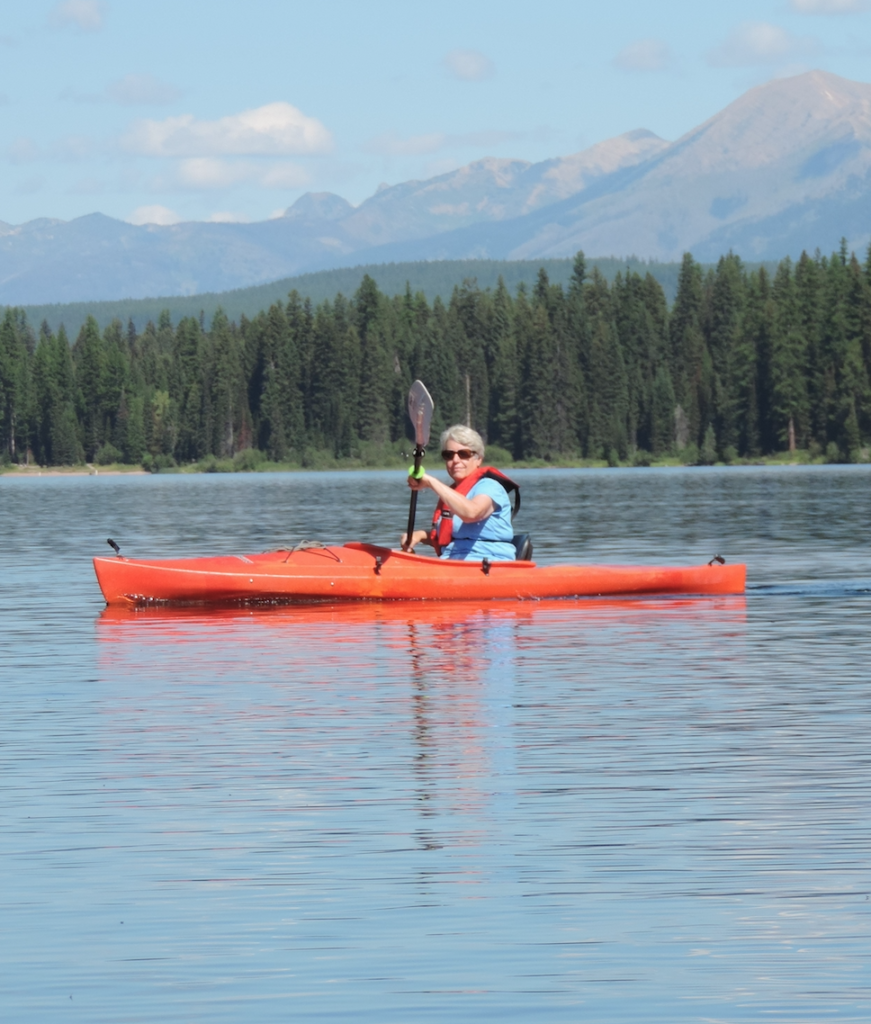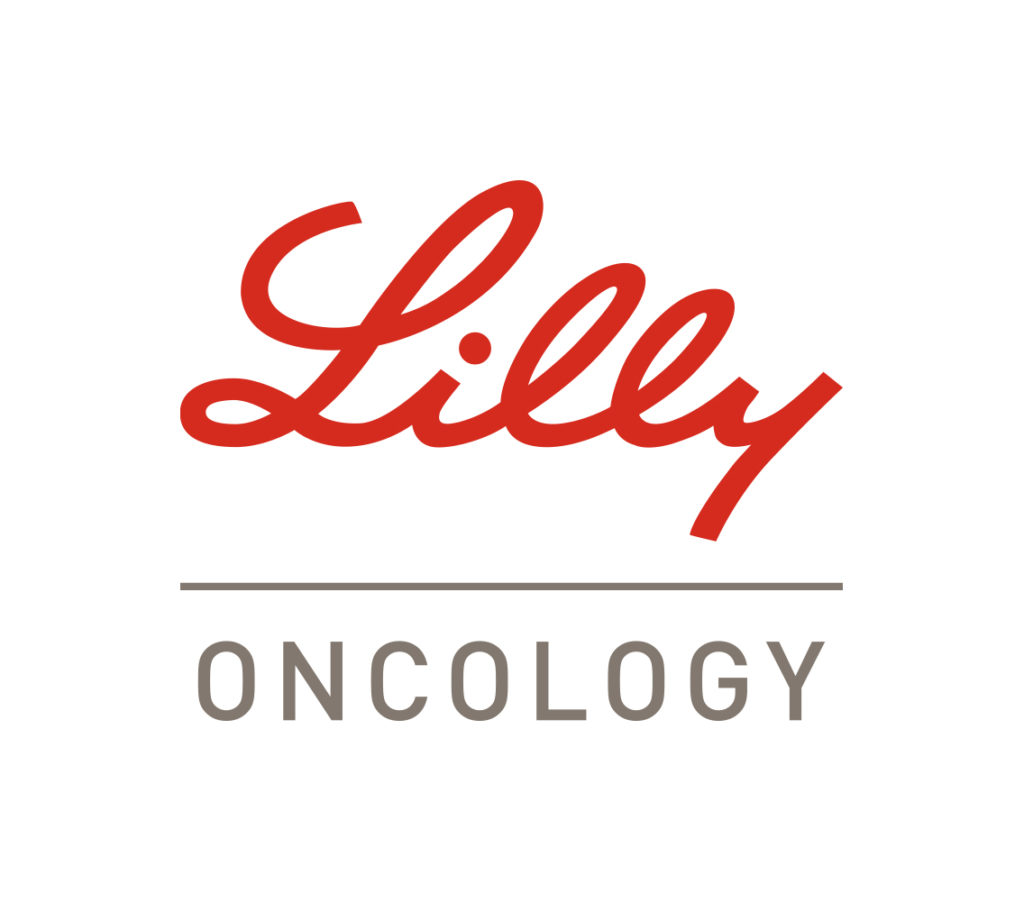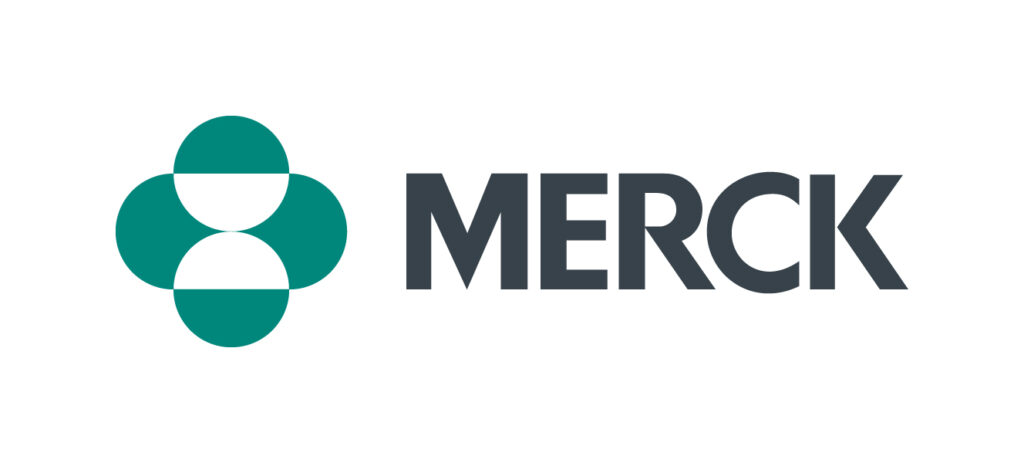This week on Real Pink we are hosting daily conversations about metastatic breast cancer (MBC) as part of National Breast Cancer Awareness Month. In the US alone, MBC is expected to kill 42,000 people. To turn MBC awareness into action, visit: https://mbc.komen.org/ and contact your local lawmakers by texting MBC to 40649.
Meet Brenda

Brenda Day was diagnosed with metastatic breast cancer decades after going through treatment for early-stage breast cancer. She created a five-year plan for herself and is making the most of her life by taking road trips, camping, kayaking and enjoying nature.
Transcript
This week on the Real Pink Podcast, we are having real discussions about metastatic breast cancer. We’ll be welcoming researchers, advocates, and people living with metastatic breast cancer to share their stories, their experiences, and their words, and encouragement. Everyone can make a difference in the life of someone living with this disease by donating to breakthrough research and urging elected officials in Washington, DC to pass pending legislation that would directly help this community details and how you can turn awareness into action in today’s podcast description.
Adam (00:00):
Brenda Day is with us today to talk about her personal journey with MBC and the tough treatment decisions she has had to make along the way. Brenda, welcome to the show.
Brenda (00:09):
Thanks Adam.
Adam (00:11):
Well, it’s so good to have you here looking forward to hearing about your story. So let’s start there. Tell us about yourself and your breast cancer journey.
Brenda (00:19):
My original diagnosis was ductal invasive, estrogen receptor positive breast cancer. In 1993, I was 45. I spent most of 1994 in treatments that included a mastectomy and chemotherapy, no lymph nodes were involved. So after a few years, I felt I could relax and go on with my life. At the time I was diagnosed, I was almost done with my bachelor’s degree at the university of Montana in Missoula. Those were hard years that challenged my life in many ways, but I was grateful to be alive after I had my bachelor’s degree in 1995, I was able to put cancer in the background and move on with my life. But that all changed in 2015, when I 68, a chest X Ray show that I had a mass in my right lung, a pet scan showed some similar messages also, and they were in the pleura, the lung and a biopsy confirmed that it was metastatic breast cancer.
Brenda (01:18):
My first question was, how is that possible? More than 20 years later, I was just blindsided. So through internet research, I learned that estrogen receptor-positive cancer cells can lie dormant in the body for decades until something triggers them to grow. There’s ongoing research to try to figure out what protects these cells and what triggers them to grow years later. And as far as I know, those questions haven’t been answered, I was totally unaware of all this. And I was in for a period of time where cancer would once again take the focus of my life.
Adam (01:54):
That’s tough. That’s really, really tough. But you know, I’m glad you’re, you’re sharing your journey with us and it’s going to mean a lot to so many people. So let’s dive in a little bit, cause we want to focus on the patient-doctor experience. Tell us what that’s been like for you so far.
Brenda (02:10):
First, I have to tell you that from April to September, in 2015, I kept going to doctors to try to find out what was causing pain in my ribs on my left side. And I spent a weekend out camping. I was so uncomfortable and miserable that when I got back, I went to express care and I told him, I didn’t want to leave that day until I had an answer. They sent me for a chest X Ray and all the focus. Although the focus was on my left side, they caught the mass in my right lung. Looking back. Now I’m a little angry at the doctor, so he could look at my records to see that I had breast cancer and still didn’t recommend chest X rays earlier. I wonder how far into cancer I would have been. If I hadn’t pushed for an answer that day, I went to express care that year or there wasn’t an oncologist in where I live in Butte or nearby the oncologist, the hospital here had left and there wasn’t anyone referred, but to be referred to close by, I was pretty much on my own to find an oncologist.
Brenda (03:08):
My best options seem to be in Bozeman, which is 85 miles away over a mountain pass or in Missoula, which is 120 miles away. When I was first diagnosed in 1993, I lived in Missoula, but I have a son who lives in Bozeman so I could get his support. If my husband wasn’t able to be at the doctor with me. So I also called a friend here who had been diagnosed with MBC about a year earlier and she recommended her oncologist and Bozeman. So I called making an appointment and they agreed to see me in two weeks. During that time I made sure all my records went to Bozeman. And while I waited, I didn’t, I did more internet research. And on November 11th, 2015, I went well-armed with information and questions, the cancer center there at Bozeman Deaconess hospital as well organized. The oncologist gently told me that there is no cure for MBC, which I knew by then, but that there are Mads that can print out a long life and slow its growth. Maybe stop it. I started an aromatase inhibitor that day. That’s a medication that prevents my body from producing the enzyme that helps it produce estrogen and estrogen encourages my cancer to grow. And a CT scan six months later showed that that worked for me. So for five years, this month, I made a trip to Bozeman every three months and had to have a CT scan there every six months to monitor the effectiveness of the medication.
Adam (04:36):
That’s I, I suppose that’s, that’s good news then. And it seems like you’re doing very well.
Brenda (04:41):
Well, I feel good. I really do.
Adam (04:43):
Oh, that’s good. That’s good. So Brenda, tell us how the current COVID-19 pandemic has affected your treatment decisions.
Brenda (04:50):
It made a big change for me because Bozeman had a high case count early on. I decided to look for treatment options closer to home. I really didn’t want to cause I liked my oncologist, but it just seemed like the thing to do. And Butte had an oncologist has one now there’s also an oncologist in Anaconda, which is about a half hour away. My oncologist in Bozeman sent my records to both and I made an appointment with the oncologist in Anaconda, mainly because the doctor I finally ended up seeing after some pretty negative experiences and good is in Anaconda. And I like her and I hope that would make it easier for her and my oncologist to coordinate my care since they are both affiliated with the same clinic and hospital, I trusted my oncologist and Bozeman a lot. Had a great relationship with him since Anaconda has been a big clinic or a cancer center, they’re a little less organized. I wait longer for appointments. I don’t get scan and T lab results as fast. I’m really trying to be patient. But once Cove is in the past, if ever I may have back to Bozeman. But then I think as my disease progresses, it will maybe being closer to home is wiser. So it hasn’t been easy.
Adam (06:03):
Yeah, it does sound like it’s difficult to navigate all those different decisions. Speaking of, you know, navigating decisions. Can you just walk us through a little bit about what types of things did you consider when you were making those decisions?
Brenda (06:17):
Well, the decisions for me have to do mostly with what medication to take. Cause there’s, there’s not much else. That’s just medications to prolong life. The three things I consider most when I’m deciding about a medication or its effectiveness, the side effects, then of course how the costs will be covered by Medicare and my drug plan. And for five years, my have now I haven’t had to make those decisions because my med has been working, but just before I left Bozeman, my oncologist there recommended that I start a bone-strengthening medication called Zometa. It’s an infusion drug and it’s a precaution for now because MBC likes to metastasize to the lung bones, liver, and brain. He told me research was showing now that starting a bone-strengthening medication before cancer gets to the bone sometimes makes it harder for it to move to the bones.
Brenda (07:09):
And we were going to talk about that at my next appointment. And of course COVID came. And when I went to the oncologist here, he recommended Prolia, which is different from Zometa. And then he also suggested adding Ibrance, which is a drug that can prolong the time that my current med will work. My mode of operation is to do research online on the effectiveness and the side effects. And right now my copay for Ibrance would be $2,800 a month, which makes that just out of the question, I can’t do that. It’s a possibility of getting help from the company. So all of that’s pretty much in limbo because funding for the company to help others is short at the end of the year. And we’re at the end of the year, just not ready to pursue that, that drug yet. So my dilemma has made my decision with my college is in Bozeman, which was Ibrance was not necessary since my current med is working so well because of side effects and quality of life.
Brenda (08:11):
We had made that decision, but the current oncologist is talking about adding it. So I’m, I’m all up in the air about that. And that happens off when you’re taking medication, she just doesn’t know, you don’t know what you want to do. And there are so many things to think about. As far as the drug for the bone-strengthening medication, I’m trying to find out the difference between Zometa and Prolia. The oncologist here says they work the same. I need to contact my oncologist and Bozeman to ask him why he recommended some Adda over Prolia because I’m not ready to just start that at the recommendation of the oncologist here at this point. So, you know, you’re just caught with all of these decisions. You have to make about whether to start the new dragon. It’s all, it’s all up to you. You know, you have to make that decision.
Brenda (08:59):
So anyway, I said to my oncologist and Anaconda, last time I saw him is that I need to think about this, get some answers to some questions and because it’s not a life or death decision right now, he said that would be okay. So one of the things I’m doing the other way I get information about drugs is I’m in a, in an MBC support group. And a lot of those women are already dealing with those drugs. And so I always ask them questions and I’m finding there are other drugs that, that haven’t even been suggested yet. So it’s taking a lot of my energy. Now I’m really at this point stopping because of COVID and waiting until the first of the year to really delve into whether to start either one of the new meds.
Adam (09:44):
Yeah. That seems wise. And I can imagine that it would just take a lot out of you to, to do all that research and, and just put all that all that effort towards, yeah.
Brenda (09:52):
That’s especially hard Adam, because there’s different information out there online sources will have different information. Oncologists will give you different information. It’s really a sort of chaotic getting the information. You just have to kind of keep researching until you find an answer that fits with your values and how you want to handle your cancer.
Adam (10:12):
Yeah. Well, and let’s, let’s talk about that for, for our last question here. What resources do you use for support and what do you recommend to others? And do you have any specific Komen resources that you’ve used in the past or that you’re using?
Brenda (10:25):
Yeah, I do. When I went to the cancer center in Bozeman to the oncologist there, I learned about the cancer support community in Bozeman. They offer support to anybody with cancer. They also offer educational programs and I attended an annual retreat for women in any stage of cancer. They call mending in the mountains, which is partially supported by Komen. And I did that for several years. In fact, this year they held that retreat online and I didn’t know how that would go, but they did an excellent job. It was very successful. And then a few years ago, I connected with Susan G Komen, Idaho Montana, strangely enough, through a newspaper ad for an MBC conference, they were holding in Boise. I was pretty excited because until then I hadn’t found anything that was specific to MBC in my area. And Komen helped pay for my travel to attend that conference in Boise.
Brenda (11:21):
And I learned so much about MBC research and the resources available. And then I helped Susan G Komen my Idaho Montana put together a conference in Montana that was held in Missoula. And that really helped me because I made connections with a lot of others who were dealing with metastatic breast cancer. And I serve on the MBC advisory council for them now. And I’m learning a lot more all the time. It’s my effort to try to get the word out to others in our state because you know, our state’s about 150,000 square miles with a population of about a million. And it isn’t easy to bring people together for support, especially while COVID has made that more difficult. And so one of the nice things that’s happened and that I learned recently is that many of the online programs and support groups will continue after COVID is no longer preventing us from getting together.
Brenda (12:16):
And that’s really neat. So I’m really hopeful that, you know, the people in Montana that don’t live in Bozeman and I don’t have those opportunities available in their communities can keep connecting with the cancer support community there and with common Idaho Montana. And like I say, that’s all helped me so much because I was sort of isolated where I lived. There wasn’t much support here. In fact, we didn’t even have an oncologist at the time I was diagnosed with metastatic breast cancer. So thank goodness. I’m glad all that’s out there for me. It took a little while for me to locate it all, which is why I’m working really hard now to get the word out.
Adam (12:54):
That’s great. That’s great. I really admire you giving back in that way to help other people connect and find the answers that they need. This has been a pleasure. Thank you so much for joining me on the show today.
Brenda (13:05):
Adam. It’s been my pleasure too, and thanks for letting me tell my story.
Support for MBC week is brought to you by our partners, Eli Lilly and Merck. Thank you for joining us on this special episode of Real Pink, focused on metastatic breast cancer. You can help the metastatic breast cancer community today by donating to breakthrough research by visiting mbc.komen.org. You can also contact your local lawmakers by texting MBC to 40649.
Sponsors

The More for MBC Facebook page is a Lilly-owned page that aims to provide people living with metastatic breast cancer a platform to engage.

Merck invents for life – our mission is to deliver innovations that extend and improve the lives of people with cancer.
About This Episode
Intro and outro music is City Sunshine by Kevin MacLeod. Ad music is Trusted Advertising by David Renda licensed from Fesliyan Studios Inc.
